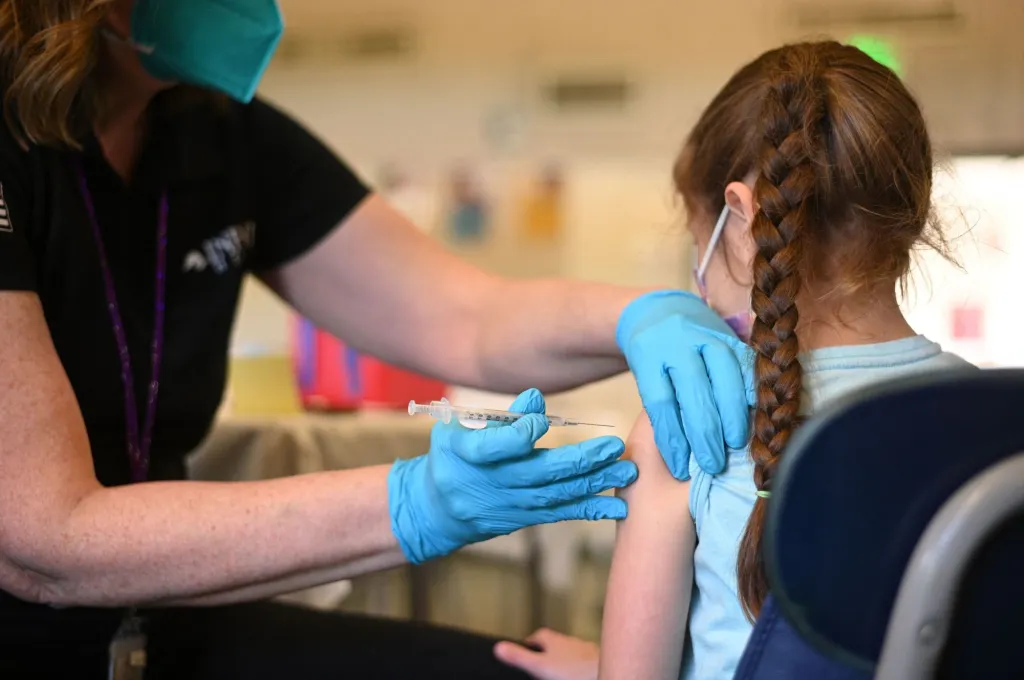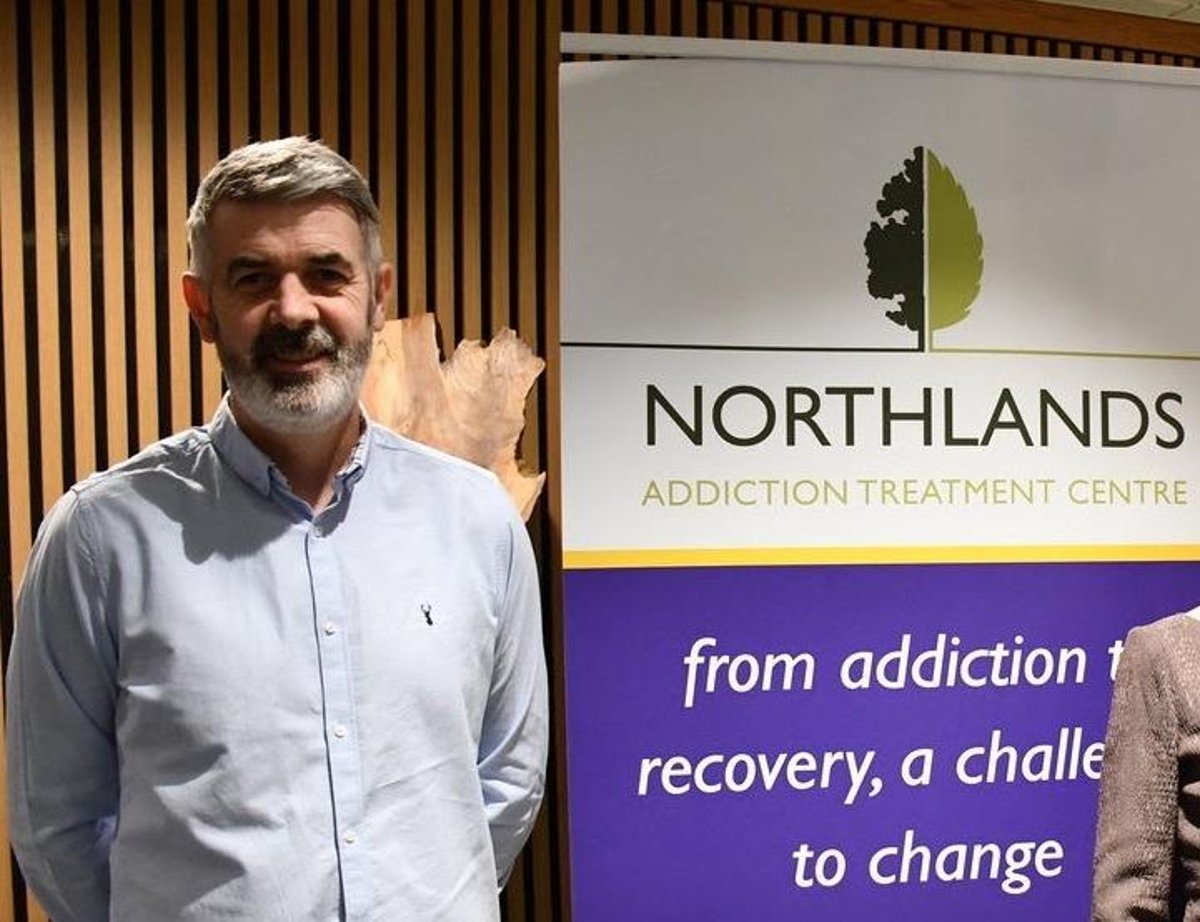
Kaiser Permanente, the largest health care provider in the North Bay, began administering the new, updated COVID-19 vaccine this week to its members in Sonoma and Napa counties.
The health care giant is making the vaccine available free of charge to all its members 6 months and older, regardless of underlying conditions. The guidance is a departure from more restrictive recent federal guidelines.
Kaiser’s announcement comes as California begins diverging state immunization policies from disputed guidance offered by the Trump administration. Last week, state lawmakers passed a budget trailer bill, SB 144, which pegs state immunization guidance to pre-Trump federal policies in place on Jan. 1, 2025.
Under the bill, future state immunization policies will rely on the California Department of Public Health to “assess the science and to make the best recommendation they can using that science,” said Dr. Karen Smith, Sonoma County’s health officer.
The bill allows state health officials to craft future policies in consultation with the American Academy of Pediatrics, the American College of Obstetricians and Gynecologists and the American Academy of Family
Physicians.
“We’re not the only state doing this,” Smith said. “It’s a huge shift, but it’s an important.”
On Aug. 27, the Federal Drug Administration released its latest guidance for COVID-19 vaccines, restricting access without a physician’s prescription to those 65 and older, as well as those with existing health issues.
That move has been criticized by professional medical associations, public health officials and infectious disease experts, who defend the vaccine and its wide availability as a key bulwark against wider and more severe outbreaks.
States led by Democrats have begun going their own way, favoring guidelines that assure wider access to the vaccine.
California, Oregon and Washington announced earlier this month the creation of the West Coast Health Alliance, a “unified regional response to the Trump Administration’s destruction of the U.S. CDC’s credibility and scientific integrity,” according to a Sept. 3 press release from Gov. Gavin Newsom.
Smith said California’s actions are necessary public health measures.
“When you can’t rely on the federal government to give you scientifically accurate information and you’re responsible for the health of the public, you need to do your own assessments of the science and make recommendations based on that,” she said.
Dr. Jessica August, an infectious disease expert at Kaiser Permanente Santa Rosa Medical Center, declined to comment on the federal government’s vaccine guidelines.
“What I can speak to is the science,” she said. The scientific evidence, continues to show us that vaccinations are not only safe but also the most effective way to protect yourself and your family against the progression of these viral infections to severe disease.”
Dr. Christine Wu, Napa County’s public health officer, welcomed Kaiser’s announcement of the availability of new updated COVID-19 vaccine. It’s also available through various commercial pharmacies, including CVS. On its website, CVS points out that “eligibility varies based on state law. Restrictions apply.”
Wu said she hopes the new state legislation linking California immunization guidelines to science-based evidence will address growing confusion and skepticism around vaccines.
Kaiser this week also encouraged its members to get their annual flu shot, seen as especially important for those 65 and older. Older adults are at higher risk of developing complications compared to young, healthy adults, the health care giant noted.
“Vaccine fatigue continues to be an issue since the COVID-19 pandemic and doctors are asking that everyone not only get their annual flu shot but also make sure they are up to date on their other vaccinations – including RSV and COVID,” Kaiser said in its statement.
Kaiser said the all the vaccines it administers are tested for effectiveness and safety before they are approved and continuously checked to see how well they are working.
In the case of respiratory syncytial virus, or RSV, Kaiser said it’s a “one-time vaccine” recommended for those 75 or older; or people who are 60 to 74 years old with certain chronic medical conditions; or those who live in a nursing home.
Unlike the COVID-19 and influenza vaccine, an RSV vaccination is not needed annually.
End-of-summer surge
Smith, Sonoma County’s interim health officer, said it appears that COVID-19 transmission in Sonoma County experienced a late-summer peak. Wastewater detection of the virus may have plateaued, she said.
“What we’re seeing now is we’re coming down off the peak and that’s good news,” she said. “Because that means that we’ve got some breathing time before we will most likely see a winter peak.”
The winter respiratory virus season usually runs from around November to March, she said.
Smith said the period from late August through September, with children back in school, is also a time of peak transmission of the common cold.
Wu said Napa County is experiencing a similar trend in COVID-19 transmission, though concentration levels of SARS-CoV-2, the virus that caused COVID-19 illness, in wastewater are different.
Napa County wastewater currently has moderate concentration levels of the virus, while Sonoma County has low levels, she said. While wastewater detection of the virus in Napa County increased sharply in July and August, over the last few weeks concentration levels have begun to plateau.
Flu season, however, now looms. Wu pointed out at that the CDC, in a recent Morbidity and Mortality Weekly Report, said the 2024-25 flu season had the highest flu hospitalizations in a decade, a result linked to lower vaccination coverage in the general population.
Fewer people are getting vaccinated for diseases like measles, which “we thought we had eliminated,” she said. “There are pockets of population that don’t want to be vaccinated now and think it’s safe to not get vaccinated.”
Like Smith, Wu applauded the state’s trailer bill, calling it “due diligence” that ensures, “at the very least, that Californians will be protected and have the option to continue to choose to get vaccinated, based on evidence from all the expert medical societies.”
Wu said that some of these groups have been providing recommendations long before CDC’s vaccine advisory committee.
You can reach Staff Writer Martin Espinoza at 707-521-5213 or martin.espinoza@pressdemocrat.com. On Twitter @pressreno.



